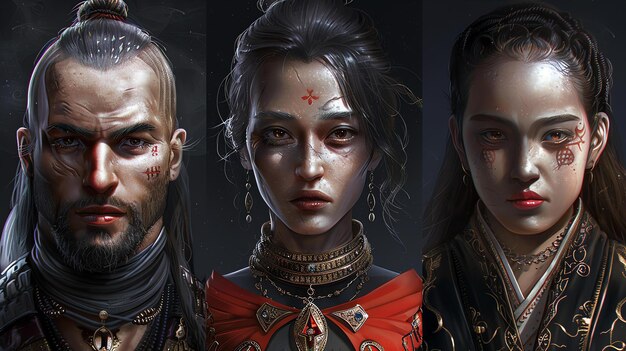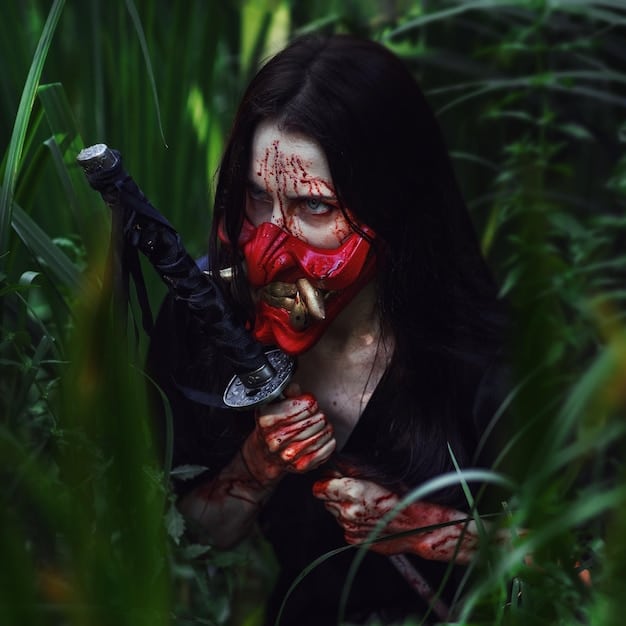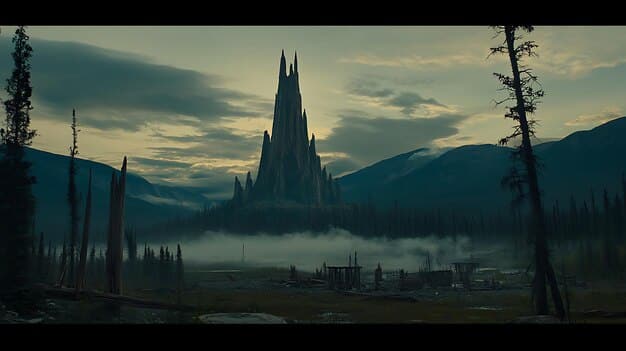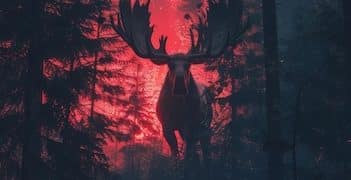The Witcher: Blood Origin – Should You Watch Before Season 4?

The Witcher: Blood Origin is a prequel miniseries set 1200 years before the events of *The Witcher*, exploring the creation of the first Witcher and the events leading to the Conjunction of the Spheres, but whether it’s essential viewing before season 4 is debatable, depending on your interest in the deeper lore.
Planning to dive into *The Witcher* Season 4? Wondering if you should watch The Witcher: Blood Origin prequel series on Netflix first? Let’s explore what this series offers and whether it’s a necessary prelude to fully enjoying the next chapter of Geralt’s saga.
Do You Need to Watch Blood Origin Before Season 4?
Deciding whether to watch *Blood Origin* before diving into *The Witcher* Season 4 ultimately depends on your viewing preferences. If you enjoy a comprehensive understanding of the Witcher universe, then *Blood Origin* could enhance your experience. However, if you’re primarily interested in the main storyline of Geralt, Yennefer, and Ciri, you might find it less essential.
The connections between *Blood Origin* and the main *The Witcher* series are there, but they are not so integral that skipping the prequel would leave you utterly lost. Season 4 is expected to continue the narratives established in the main series, focusing on the political landscapes and personal journeys of the central characters. *Blood Origin*, on the other hand, delves into the ancient history and the origins of the Witcher world.
Key Takeaways from Blood Origin
If you decide to skip *Blood Origin*, it may be helpful to know some of the main revelations from the prequel. This can help you understand any potential references or allusions in Season 4. Knowledge of the Conjunction of the Spheres, the creation of the first Witcher, and the fall of a great elven civilization enriches the overall viewing experience of the Witcher saga.
- The Conjunction of the Spheres: This pivotal event, which merged various worlds and brought monsters and magic to the Continent, is central to the Witcher lore.
- The Creation of the First Witcher: Understanding the alchemical and magical processes behind the creation of the prototype Witcher provides context for the existing Witchers.
- The Elven Civilization: Learning about the advanced but declining elven society and their internal conflicts offers insight into the racial and political dynamics of the main series.
To sum it up, watching *Blood Origin* is beneficial for lore enthusiasts, but it’s possible to enjoy *The Witcher* Season 4 without it. The choice depends on how deeply you wish to immerse yourself in the Witcher universe.
Exploring the Narrative of Blood Origin
*The Witcher: Blood Origin* is a four-part miniseries that stands on its own, with its own set of characters and conflicts. The story is set long before Geralt’s time and follows the journey of a group of outcasts who come together to fight an oppressive empire and set the stage for the world of *The Witcher*.
The narrative introduces us to new characters like Éile, a warrior-singer, and Fjall, a disgraced prince. Their stories, interwoven with those of other warriors and mages, depict a world on the brink of cataclysmic change. The series excels in portraying the societal dynamics and the struggles of different groups vying for power in its world.

While the general plot may seem simple, *Blood Origin* fleshes out the details of ancient elven kingdoms and political intrigues that ripple across the timeline. The show adds depth to the overarching Witcher mythology, providing a backstory that enriches the viewer’s comprehension of the main series.
Though *Blood Origin* has received mixed reviews, its contribution to the foundations of *The Witcher* lore cannot be denied. For viewers interested in the roots of the Witcher world, this series is worth exploring to gain a deeper insight into its history.
Characters and Casting in Blood Origin
The strength of *The Witcher: Blood Origin* largely resides in its ensemble cast and their portrayal of characters who are significant in shaping the world we see in *The Witcher*. The characters, though new, are designed to resonate thematically with concepts explored in the main series.
Characters like Éile and Fjall bring fresh perspectives to the franchise, embodying themes of rebellion, honor, and sacrifice. Their arcs represent the broader conflicts within the world, highlighting the clash between different cultures and ideals.
Some notable cast members who bring these characters to life include:
- Sophia Brown as Éile: A fierce warrior with a beautiful voice, Éile is forced to embrace her destiny as a warrior to fight for justice.
- Laurence O’Fuarain as Fjall: A troubled prince seeking redemption, Fjall’s brute strength and inner turmoil make him a compelling figure.
- Michelle Yeoh as Scían: The last of her nomadic tribe of sword-elves, she’s on a mission to retrieve a sacred sword.
The casting choices reflect a commitment to diversity, adding layers to the already rich tapestry of the Witcher universe. However, it is the performances that truly make these characters memorable and contribute to the series’ overall impact.
These characters enhance the viewing experience and provide a nuanced understanding of the roles that different groups and individuals play in shaping the world of *The Witcher*.
Critical Reception of Blood Origin
*The Witcher: Blood Origin* has faced mixed reviews from critics and audiences alike. Some have praised its ambition in expanding the Witcher universe, while others have criticized its narrative choices and character development. Understanding the critical reception can give potential viewers a balanced perspective on whether to invest their time in watching it.
Common criticisms include pacing issues, deviations from the source material, and perceived lack of depth in some character arcs. These criticisms suggest that the series may not appeal to all fans of *The Witcher*, especially those who value strict adherence to the lore.
Conversely, some critics have highlighted the series’ visual appeal, action sequences, and world-building efforts. Praises often focus on the show’s attempts to offer fresh perspectives on established themes within the Witcher universe. The Conjunction of the Spheres is visually creative and intriguing.
Below are some factors that contribute to the varying opinions:
- Expectations: Preconceived expectations can heavily influence how viewers perceive the series.
- Pacing: The fast-paced narrative may feel rushed to some, while others may find it engaging.
- Character Depth: The depth and complexity of the characters might not resonate with all viewers.
In conclusion, it is best to approach *Blood Origin* with an open mind, keeping in mind that the series offers its own unique take on the Witcher lore and may diverge from established norms.
Impact on The Witcher Lore
*The Witcher: Blood Origin* has both expanded and reinterpreted aspects of the established Witcher lore. The series elaborates on events that were previously only hinted at in the main series, thereby adding layers of depth to the overall narrative. While some may appreciate these additions, others find them to be disruptive to the original source material.
One significant impact of *Blood Origin* is its portrayal of the Conjunction of the Spheres. It showcases the chaotic and transformative nature of this event, which remains pivotal to understanding the presence of monsters and magic in the Witcher world. This visual representation enriches the viewers comprehension of the historical and magical context in the main series.

However, some lore purists argue that *Blood Origin* takes liberties with established canonical details, potentially causing inconsistencies within the greater Witcher timeline. Debates often revolve around the accuracy of certain events and character origins as depicted in the prequel.
Here are a few impacts on the lore:
- Conjunction of the Spheres: Detailed explanation of the catastrophic event.
- First Witcher: Origin of the initial prototype Witcher.
- Elven Society: Exploration of the advanced but declining civilization.
Ultimately, *Blood Origin* offers a broader perspective on the history and mythology of *The Witcher*, prompting fans to reconsider aspects of the lore in light of these new revelations.
Season 4 Implications and Predictions
As we look forward to *The Witcher* Season 4, it’s worth considering how *Blood Origin* might influence the upcoming storyline. While the prequel is set centuries before Geralt’s time, its echoes resonate within the historical and political landscape of the main series.
The events of *Blood Origin* could provide context for understanding the motivations and actions of various factions in Season 4. References to ancient prophecies, elven kingdoms, and the consequences of the Conjunction of the Spheres might play a more prominent role in the storytelling.
Possible Connections to Season 4
While speculative, there are plausible ways *Blood Origin* could tie into *The Witcher* Season 4. Here are a few:
- Historical References: Characters might reference historical figures or events from *Blood Origin*.
- Magic and Lore: Deeper exploration of ancient magic and lore established in *Blood Origin*.
- Monsters and Creatures: The origins of specific monsters featured in *Blood Origin* might be revealed.
The potential for these thematic and plot-related connections suggests that viewership of *Blood Origin* might enrich one’s appreciation of the more subtle nuances present in *The Witcher* Season 4.
Even if *Blood Origin* doesn’t directly impact the plot, its contribution to the overall lore could add layers of understanding to the unfolding events in Season 4.
Final Verdict: To Watch or Not to Watch?
Deciding whether to watch *The Witcher: Blood Origin* before *The Witcher* Season 4 is a question of personal preference. If you’re deeply invested in the lore and enjoy a comprehensive understanding of the Witcher universe, then watching the prequel can provide a valuable context.
However, if you are primarily interested in the main storyline of Geralt, Yennefer, and Ciri, and prefer not to diverge from their narratives, you can still fully enjoy *The Witcher* Season 4 without watching *Blood Origin*.
Here are some guiding questions you can ask yourself to determine if watching *Blood Origin* is right for you:
- Do you enjoy deep dives into lore and background stories?
- Are you interested in understanding the origins of magic, monsters, and the Witcher world?
- Do you mind if a prequel deviates from established lore to some extent?
In summary, *Blood Origin* enriches the Witcher universe for those who seek to explore its depths, but it is not essential viewing for enjoying the core narratives of the main series. Consider your interests and preferences before deciding whether to watch it.
| Key Point | Brief Description |
|---|---|
| ⚔️ Witcher Origins | Explores the creation of the first Witcher and the alchemical processes involved. |
| 🌌 Conjunction | Details the pivotal event that brought monsters and magic to the Continent. |
| 🛡️ Elven Civilization | Shows the advanced society of elves before its decline and fall. |
| 🎭 Character Arcs | Introduces new characters like Éile and Fjall, adding depth to the universe. |
Frequently Asked Questions
▼
No, it’s not essential. ‘Blood Origin’ offers backstory but Season 4 will likely focus on the main series’ plot. It’s beneficial for lore enthusiasts but not crucial for enjoying the primary storyline.
▼
The Conjunction of the Spheres is a cataclysmic event that merged different worlds, bringing monsters, magic, and humans to the elven world forming the Continent explored in *The Witcher*.
▼
The main characters include Éile, a warrior-singer, Fjall, a disgraced prince, and Scían, a skilled swordswoman. These characters together shape the landscape of the Witcher world.
▼
‘Blood Origin’ has received mixed reviews with some praising its ambition in expanding the Witcher universe. Other critics pointed out the narrative choices and character development.
▼
While not confirmed, Season 4 could include historical references, deeper explorations of lore, or unveil the origins of monsters. These plot and thematic connections might enrich the viewing experience.
Conclusion
In conclusion, whether you choose to watch *The Witcher: Blood Origin* before diving into Season 4 depends largely on your personal preferences. If you’re a dedicated fan of the Witcher universe and enjoy exploring its rich mythology, *Blood Origin* offers a valuable perspective on the events that shaped the world. However, those primarily interested in the main storyline can comfortably proceed to Season 4 without missing crucial plot points.





